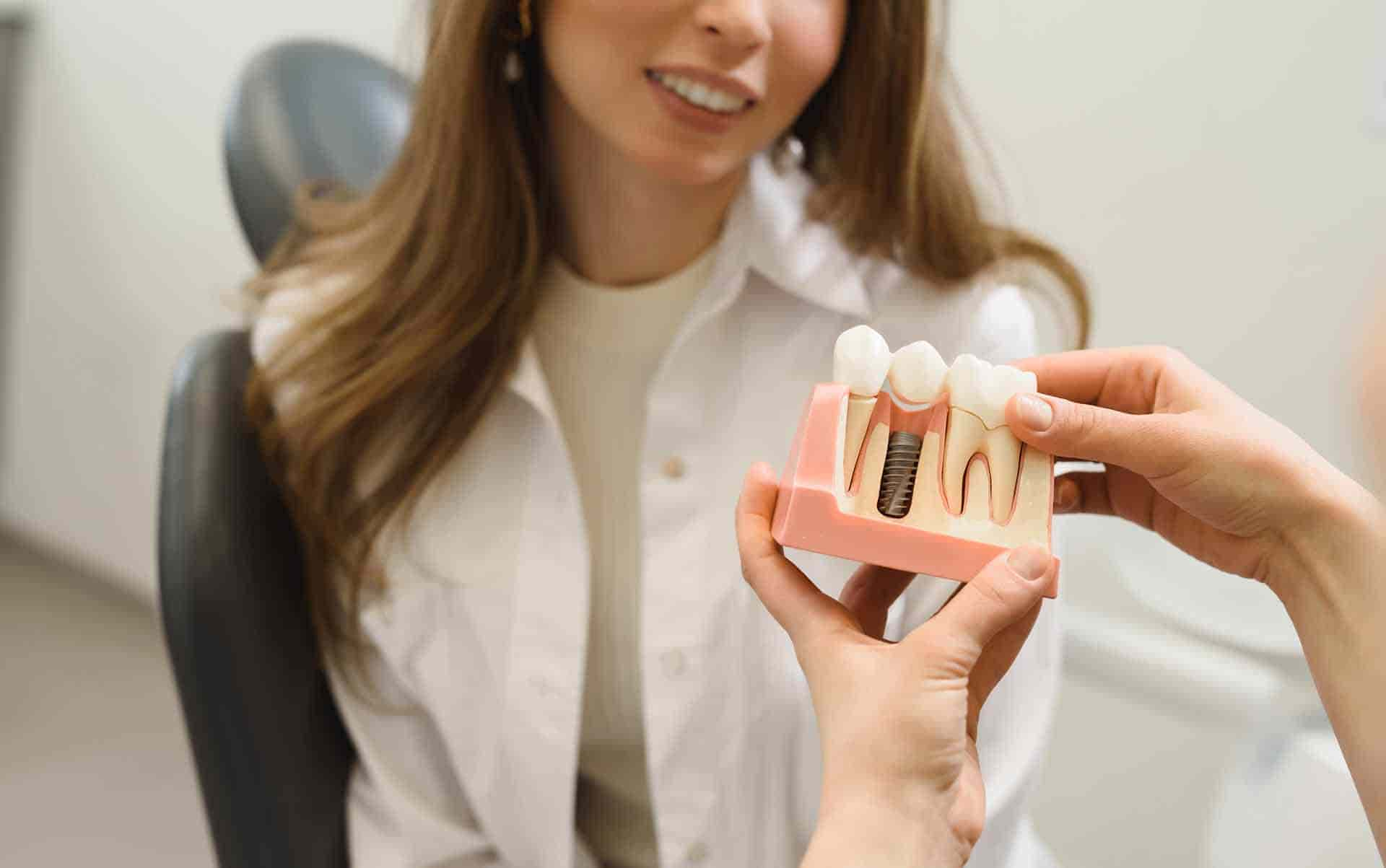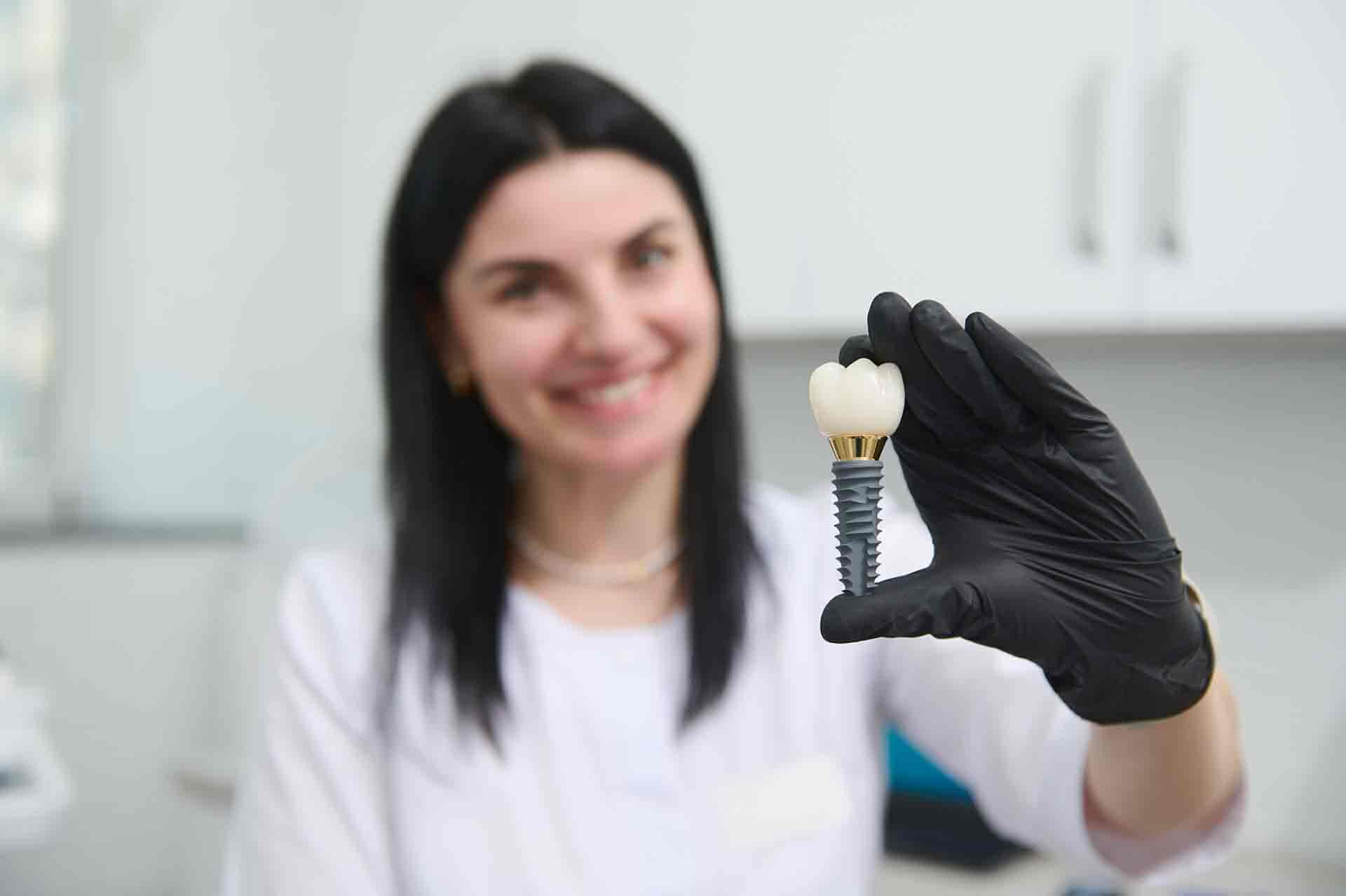Maintenance & Aftercare of All-on-X Implants
October 2025
Maintenance & Aftercare of All-on-X Implants is essential to ensure the long-term success of your full-arch dental restoration. All-on-X implants offer a stable, durable solution for patients missing multiple teeth, but like natural teeth, they require consistent care to protect your investment, prevent complications, and maintain optimal oral health. In this guide, we’ll cover everything you need to know, from immediate post-operative instructions to daily routines and professional care tips.
Understanding Your All-on-X Implants
All-on-X implants, sometimes referred to as fixed implant bridges, are a revolutionary solution for patients seeking a complete smile restoration. Unlike traditional dentures, these implants are anchored directly into the jawbone, providing a permanent, stable foundation.
The "X" in All-on-X indicates the number of implants supporting your prosthetic arch, commonly four or more. The procedure is designed to restore chewing function, speech, and facial aesthetics, making it a popular choice for those seeking a long-term solution to tooth loss.
Proper care of your implant surface and surrounding tissues is key to reducing the risk of implant failure and gum disease.
Immediate Post-Operative Care
Following your procedure, the first few days are crucial for healing. Here are important post-operative instructions for a fixed implant bridge:
- Manage swelling and discomfort: Apply ice packs intermittently for the first 24–48 hours. Mild pain can be controlled with prescribed medication.
- Soft foods only: Stick to soft foods for at least the first week to avoid placing stress on the implant site.
- Hydration: Drink plenty of water, but avoid using straws, as suction can disrupt healing.
- Avoid smoking and alcohol: Both can increase the risk of complications and slow the healing process.
Following these instructions helps reduce discomfort and sets the stage for long-term success.
Daily Maintenance of All-on-X Implants
After the initial healing period, it’s time to focus on your daily care and maintenance. Maintaining your implants is similar to caring for natural teeth but requires extra attention to prevent plaque buildup around the implant site.
- Brushing: Use a soft bristle toothbrush at least twice a day, gently cleaning around the implants and prosthetic teeth.
- Flossing and water flossers: Regular flossing is critical. Water flossers are particularly effective at removing debris from under the bridge and around the abutments.
- Rinsing: Use an antiseptic mouthwash to reduce bacteria and protect your gum tissue.
By integrating these practices into your daily routine, you help prevent gum disease and ensure your implants remain healthy and stable.
Professional Care and Checkups
Routine visits to your dentist are essential for long-term success with All-on-X implants. Professional cleanings allow for:
- Removal of plaque and tartar that at-home care may miss.
- Assessment of the implant site for signs of infection or implant failure.
- Adjustment of the prosthetic bridge if needed to maintain proper fit and function.
Most dentists recommend checkups every six months, though your provider may suggest more frequent visits immediately after surgery.
Lifestyle Tips to Protect Your Investment
Maintaining All-on-X implants goes beyond brushing and flossing. Lifestyle choices can significantly impact the longevity of your dental restoration:
- Avoid smoking: Smoking increases the risk of implant failure and delays the healing process.
- Mind your diet: Hard or sticky foods can place undue pressure on the prosthetic. Stick to soft foods as much as possible, especially in the early months.
- Monitor your oral health: Watch for signs of inflammation, bleeding, or discomfort around the implant site and contact your dentist promptly if you notice any issues.
By taking a proactive approach, you reduce the risk of complications and help ensure your All-on-X implants serve you well for years.
Common Questions About All-on-X Maintenance
How often should I see my dentist?
Professional checkups and cleanings are recommended every six months, but some patients may need more frequent visits depending on their individual oral health.
Can I floss around All-on-X implants?
Yes. Using specialized floss or a water flosser is highly effective at keeping the implant surface clean and reducing plaque buildup.
Are there any foods I should avoid long-term?
While your implants are durable, it’s best to limit very hard or sticky foods that could damage the prosthetic or put excessive force on the implant site.
Ensuring Long-Term Success
Long-term success of All-on-X implants depends on a combination of daily maintenance, professional care, and lifestyle habits. By following your dentist’s instructions, attending regular checkups, and taking care of your overall oral health, you can enjoy a stable, healthy, and confident smile for years to come.
At Raio Dental, we specialize in All-on-X dental implants and provide personalized guidance to ensure your care and maintenance is effective and stress-free. From the initial consultation to professional cleanings and ongoing support, we help you protect your investment and maintain excellent oral health.
Ready to take the next step in your dental journey? Learn more about our All-on-X implant services and discover how professional care can make your smile last a lifetime.

What Are the Latest Orthodontic Innovations That Are Making Treatment Faster?
February 2026Key Takeaways Orthodontic innovations are making treatment faster, smarter, and more comfortable AI orthodontics improves accuracy through AI treatment planning and visualization simulations Clear aligner innovations and smarttrack aligners support better tracking and ...
A Complete Guide to Restoring Damaged Teeth in New York
January 2026Key Takeaways:- Restoring damaged teeth is more reliable than ever with modern dentistry Early treatment helps repair damaged teeth before problems progress Damaged enamel restoration focuses on mineralization and protection, not true regrowth Restorative ...
Preventive Dental Care Trends in 2026: Early Detection & Smart Care
January 2026Key Takeaways:- Preventive dental care trends in 2026 are all about catching problems early and tailoring care to each patient Digital diagnostics and smart oral devices make proactive dental care easier than ...
Is Professional Teeth Whitening Worth the Cost in New York?
January 2026Key Takeaways Professional teeth whitening delivers faster, longer-lasting results In-office treatments are safer than over-the-counter kits Whitening improves confidence and smile appearance Dentist-guided whitening reduces sensitivity risks Results typically last 6–12 months with good care Professional ...
Is Teeth Whitening Permanent?
January 2026A bright, white smile can boost confidence and transform your appearance but one common question patients often ask is, "is teeth whitening permanent?". The truth is that while teeth whitening ...
All-on-X Implants vs. Traditional Dentures: Pros and Cons
October 2025When considering tooth replacement options, many patients wonder about All-on-X Implants vs. Traditional Dentures: Pros and Cons. Both solutions can restore a full arch of teeth, improve oral health, and ...
Maintenance & Aftercare of All-on-X Implants
October 2025Maintenance & Aftercare of All-on-X Implants is essential to ensure the long-term success of your full-arch dental restoration. All-on-X implants offer a stable, durable solution for patients missing multiple teeth, ...
Can a Night Guard Help With Snoring?
September 2025Snoring is a common issue that affects both the person snoring and their sleep partner. For some, it's just a minor nuisance, but for others, it can signal an underlying ...
How to Reduce Swelling After Oral Surgery
September 2025Swelling is one of the most common side effects after oral surgery. Whether you've had your wisdom teeth removed, a tooth extraction, or another procedure, swelling is part of the ...
Can TMJ Cause Dizziness? Understanding the Link Between Jaw Disorders and Balance
August 2025Do you ever feel lightheaded for no clear reason? Struggle with sudden dizziness when standing up or turning your head? Feel off-balance even when everything else seems normal? These symptoms ...
Can Orthodontics Improve a Misaligned Jaw?
September 2025Did you know? A misaligned jaw can cause chronic headaches, ear pain, difficulty chewing, and even lead to temporomandibular joint (TMJ) disorders. Most people think orthodontics is only for straightening ...
























